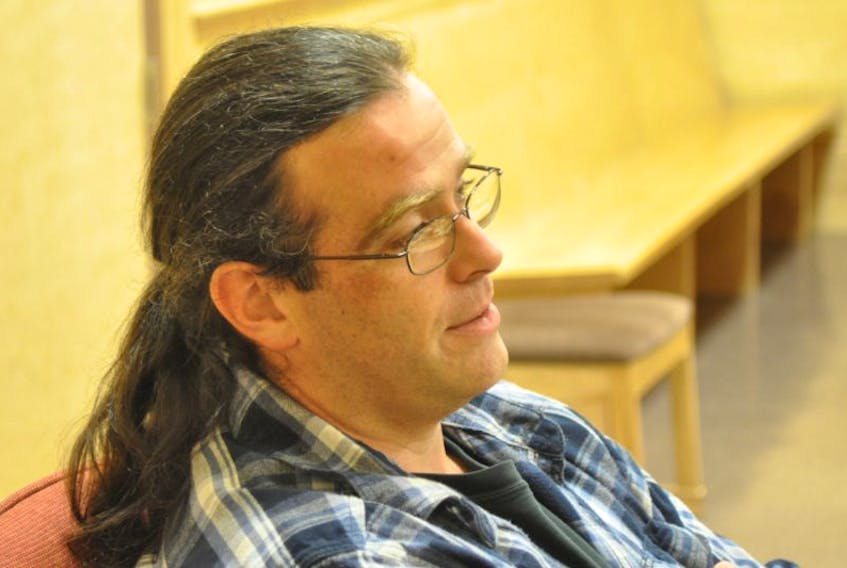“Passionate dissent from the will of the multitude should be respected, not derided.”
— Howard Jacobson, British novelist
“This situation has gone on for a very long time,” Andrew Abbass says, sounding frustrated and somewhat weary in a phone interview Tuesday from Goose Bay.

Six months ago, after a two-year fight for his day in court, Abbass was finally given a chance to have his lawyer argue before a judge that his six-day involuntary detainment in a Corner Brook psychiatric unit was unjustified and unlawful.
He had been taken by police to Western Memorial Regional Hospital under the auspices of the province’s Mental Health Care and Treatment Act (MHCTA) on April 7, 2015 after tweeting outrage to government over the fatal shooting of Donald Dunphy in Mitchells Brook by police two days prior.
Dunphy himself had often taken to Twitter to express his grievances with authorities, and Abbass was no stranger to issues of injustice.
Abbass said he was given no documentation authorizing the police action, apart from being told by the officers at his door, “The doctor wants to see you.”
Later, Abbass’s certificate of detention would note: “This has been ordered” — the unanswered question being, who had done the ordering?
Dunphy himself had often taken to Twitter to express his grievances with authorities, and Abbass was no stranger to issues of injustice.
Kept at the hospital involuntarily for six days after only a cursory assessment, a subsequent thorough psychiatric exam gave him a clean bill of mental health.
At the time, a judge refused to hear Abbass’s argument that he should not have been detained, saying he had recourse under the MHCTA, but the Supreme Court of Newfoundland and Labrador Court of Appeal later disagreed, noting in its April 2017 ruling, “The courts must always be there for the vindication of the citizen with what he or she views as the wrongful exercise of authority. Mr. Abbass was denied his day in court.”
That day finally came on July 7, 2017, when Justice Brian F. Furey presided over his habeas corpus hearing, where arguments were made as to whether Abbass’s detention was valid and lawful.
He was hoping to hear Furey’s decision long before now and is dogged by the consequences of his detainment — work and research projects derailed, family strains, financial stress and the tarnished reputation that can result when you’ve been picked up by police, hustled off to a hospital and involuntarily admitted.
“My credibility was so damaged…” Abbass says. “I’ve been defamed, essentially, and it’s coming up on three years.”
In an email, Abbass articulated his feelings: “Frustrated. Angry. Disillusioned with the system. Disenfranchised. … The fact that this matter has bled over to impact my family life directly is very concerning to me.”
Abbass said the best outcome — given that his detainment can never be undone — would be for the justice system to acknowledgement he was treated unlawfully and to have any related health documentation expunged.
“I'd also like the concept of involuntary detainment examined,” he said. “Right now, too much authority is being given to doctors to completely violate a person's right to autonomy. … It gives someone the right to say a person is less than human and not entitled to the same human rights afforded to everyone else. …
“Beyond the impact on the concept of involuntary detainment and the imbalance of authority, I'd like to see punitive damages come out of this as well. A slap on the wrist is not a deterrent to future abuse. A very clear message needs to be sent that this kind of behaviour will not be tolerated by our public officials, especially those charged with protecting the most vulnerable sector of society.”
Abbass is also hoping people will not be deterred from speaking out by the chilling effects of his own experience.
“I’ve been told by several people that they will never use their real name online again because of what happened to me. … You can't have a democracy without free speech,” he said.
“People have to be free to voice dissenting opinions without fear of repercussion from public officials. … In bad times, good people can’t remain silent.”
Pam Frampton is The Telegram’s associate managing editor. Email [email protected]. Twitter: pam_frampton
Related columns by Pam Frampton:
Andrew Abbass — a life in limbo









